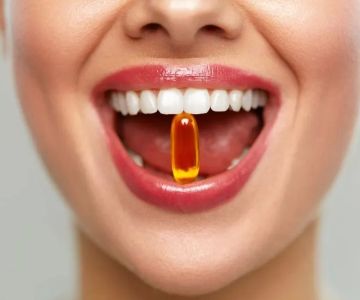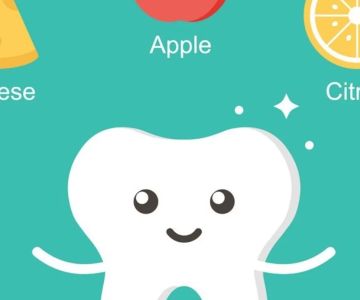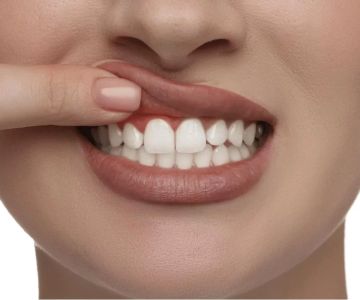The Link Between Diet and Oral Cancer: Understanding the Risks
Oral cancer is a serious health issue, and diet plays an important role in either contributing to or mitigating the risk of developing this condition. With the prevalence of unhealthy eating habits, it is crucial to understand the types of diets that can lead to oral cancer and how making healthier choices can reduce that risk.
1. The Role of Nutrition in Oral Health
Our diet directly impacts our oral health, and poor dietary choices can weaken the immune system, which increases the chances of developing oral health problems, including oral cancer. Nutrient deficiencies, high sugar consumption, and the consumption of processed foods can lead to weakened tissues in the mouth, which may eventually lead to cancerous growths. On the other hand, eating a balanced diet rich in antioxidants, vitamins, and minerals strengthens your oral health and decreases the likelihood of developing cancer.
2. Diets High in Sugar and Processed Foods
A diet rich in sugar and processed foods can increase the risk of oral cancer by promoting the growth of harmful bacteria in the mouth. Sugary foods and beverages can also contribute to inflammation and increase the chances of developing lesions or sores in the mouth. Consuming these foods frequently can also lead to the development of conditions like gum disease, which is a significant risk factor for oral cancer. Furthermore, processed meats often contain carcinogenic chemicals like nitrates and nitrites, which have been linked to an increased risk of cancers, including oral cancer.
3. The Importance of Fresh, Whole Foods
On the other hand, a diet rich in whole foods like fruits, vegetables, whole grains, and lean proteins is essential for maintaining a healthy mouth and preventing oral cancer. Foods such as citrus fruits, leafy greens, and tomatoes contain antioxidants and other compounds that help fight inflammation and protect oral tissues from cellular damage. Additionally, a diet high in fiber helps keep the mouth clean by stimulating saliva production, which acts as a natural defense against harmful bacteria and toxins.
4. Alcohol Consumption and Its Impact on Oral Cancer Risk
Excessive alcohol consumption is another dietary factor that significantly contributes to the risk of oral cancer. Alcohol can cause damage to the cells lining the mouth and throat, making them more susceptible to cancer-causing agents. When combined with smoking, alcohol use can dramatically increase the likelihood of developing oral cancer, as both behaviors are known to act synergistically to damage oral tissues.
5. The Role of Smoking in Oral Cancer Risk
While smoking is not directly related to diet, it is a key contributor to oral cancer risk that interacts with the diet. Smoking reduces the body's ability to absorb essential nutrients and accelerates the harmful effects of an unhealthy diet. If you are already consuming a diet high in sugar and low in nutrients, smoking can exacerbate the damage, increasing your chances of developing oral cancer.
6. Key Dietary Changes for Prevention
To reduce the risk of oral cancer, it’s important to adopt a well-balanced diet that supports your oral and overall health. Here are some dietary changes that can help:
- Increase your intake of fruits and vegetables, particularly those rich in antioxidants like berries, tomatoes, and leafy greens.
- Limit sugary foods and beverages, as they contribute to inflammation and tooth decay.
- Opt for whole grains over processed foods, and include lean proteins like fish and chicken to support tissue repair and immune health.
- Reduce alcohol consumption, or eliminate it entirely to lower your cancer risk.
- Quit smoking and avoid exposure to tobacco-related products.
7. The Role of Supplements in Oral Health
In addition to diet, supplements can play a supporting role in preventing oral cancer. Vitamins A, C, and E are particularly beneficial for oral health, as they help repair damaged tissues and fight inflammation. Omega-3 fatty acids, found in foods like fish and flaxseed, can also help reduce inflammation and support overall immune function, which is essential in preventing cancer.
8. Conclusion: A Holistic Approach to Oral Cancer Prevention
While diet is a significant factor in preventing oral cancer, it’s just one piece of the puzzle. A holistic approach to oral health includes not only a healthy diet but also regular dental check-ups, good oral hygiene practices, and lifestyle choices like avoiding smoking and limiting alcohol consumption. By making informed dietary decisions and taking proactive steps to maintain your oral health, you can significantly reduce your risk of developing oral cancer.
If you're interested in learning more about maintaining good oral health or need advice on improving your diet for cancer prevention, visit Dentistry Toothtruth for expert recommendations and services.







 Family Holland Dental4.0 (236 review)
Family Holland Dental4.0 (236 review) Dr. Jeff Loftus, DDS3.0 (3 review)
Dr. Jeff Loftus, DDS3.0 (3 review) Bright Valley Dental4.0 (97 review)
Bright Valley Dental4.0 (97 review) Access Dental, Dentures & Implants4.0 (426 review)
Access Dental, Dentures & Implants4.0 (426 review) Tri City Endodontics5.0 (4 review)
Tri City Endodontics5.0 (4 review) Tascha Z. Fuchs, DDS5.0 (63 review)
Tascha Z. Fuchs, DDS5.0 (63 review) The Importance of Oral Health Education During Pregnancy for a Healthy Pregnancy
The Importance of Oral Health Education During Pregnancy for a Healthy Pregnancy Best Tips for Brushing Your Teeth Properly for Healthy Gums: Essential Techniques for Oral Health
Best Tips for Brushing Your Teeth Properly for Healthy Gums: Essential Techniques for Oral Health Why Skipping Dental Checkups Can Lead to Bigger Oral Health Problems
Why Skipping Dental Checkups Can Lead to Bigger Oral Health Problems Advantages of Porcelain Dental Restorations
Advantages of Porcelain Dental Restorations How Can Diabetes Cause Tooth and Gum Problems? Preventing and Managing Oral Health Issues
How Can Diabetes Cause Tooth and Gum Problems? Preventing and Managing Oral Health Issues Healthy Habits for Promoting Good Oral Health and Hygiene: Tips for a Healthy Smile
Healthy Habits for Promoting Good Oral Health and Hygiene: Tips for a Healthy Smile